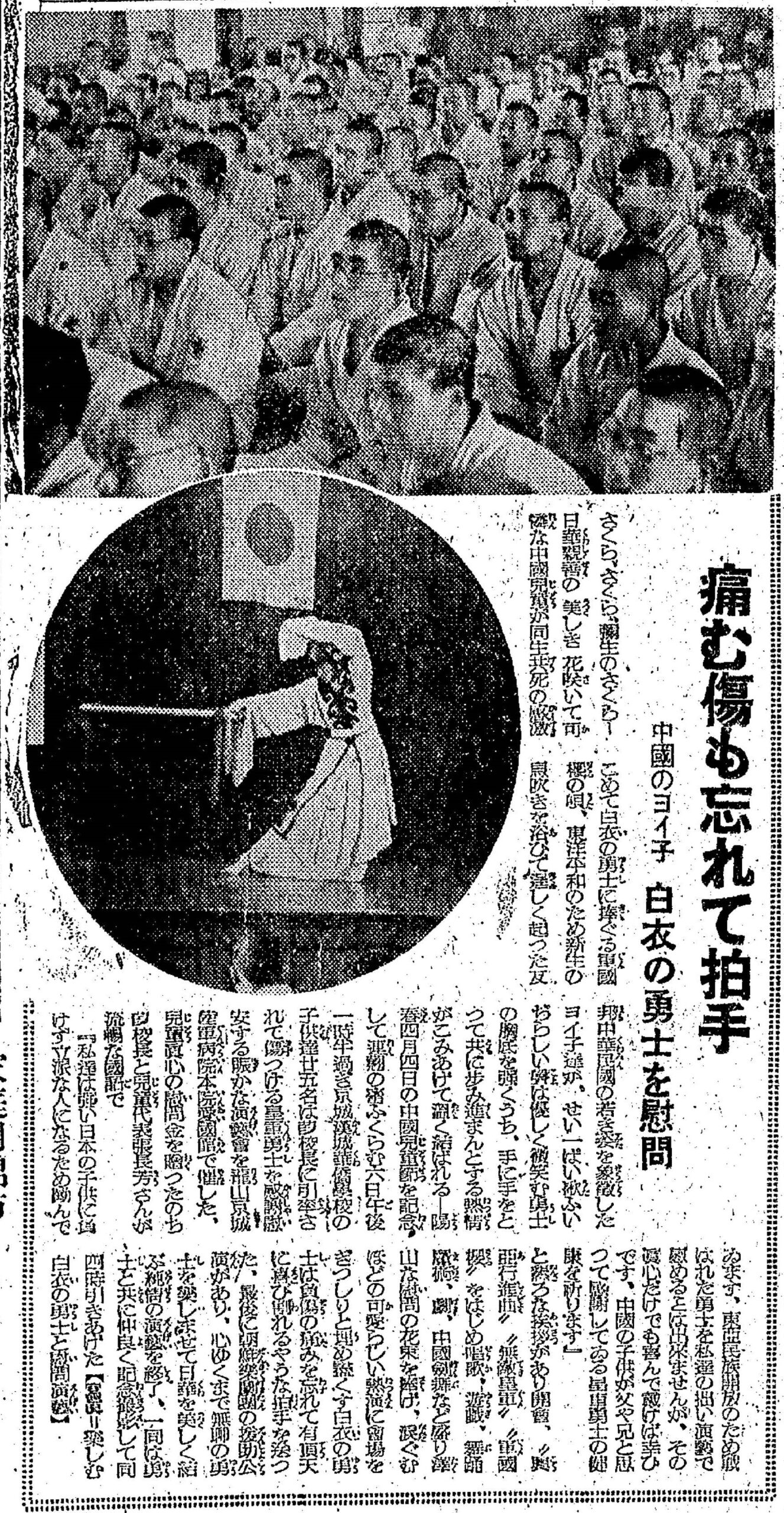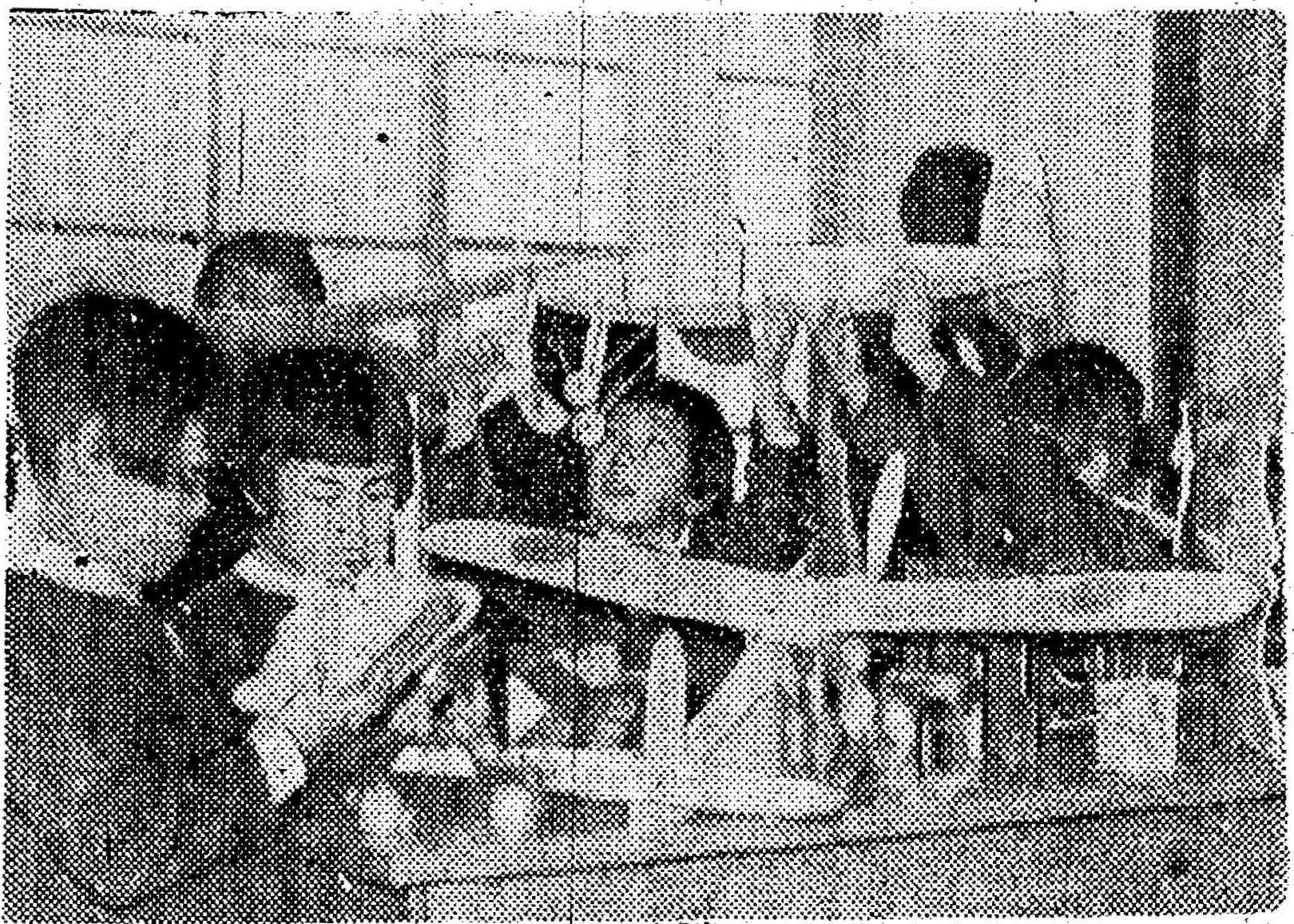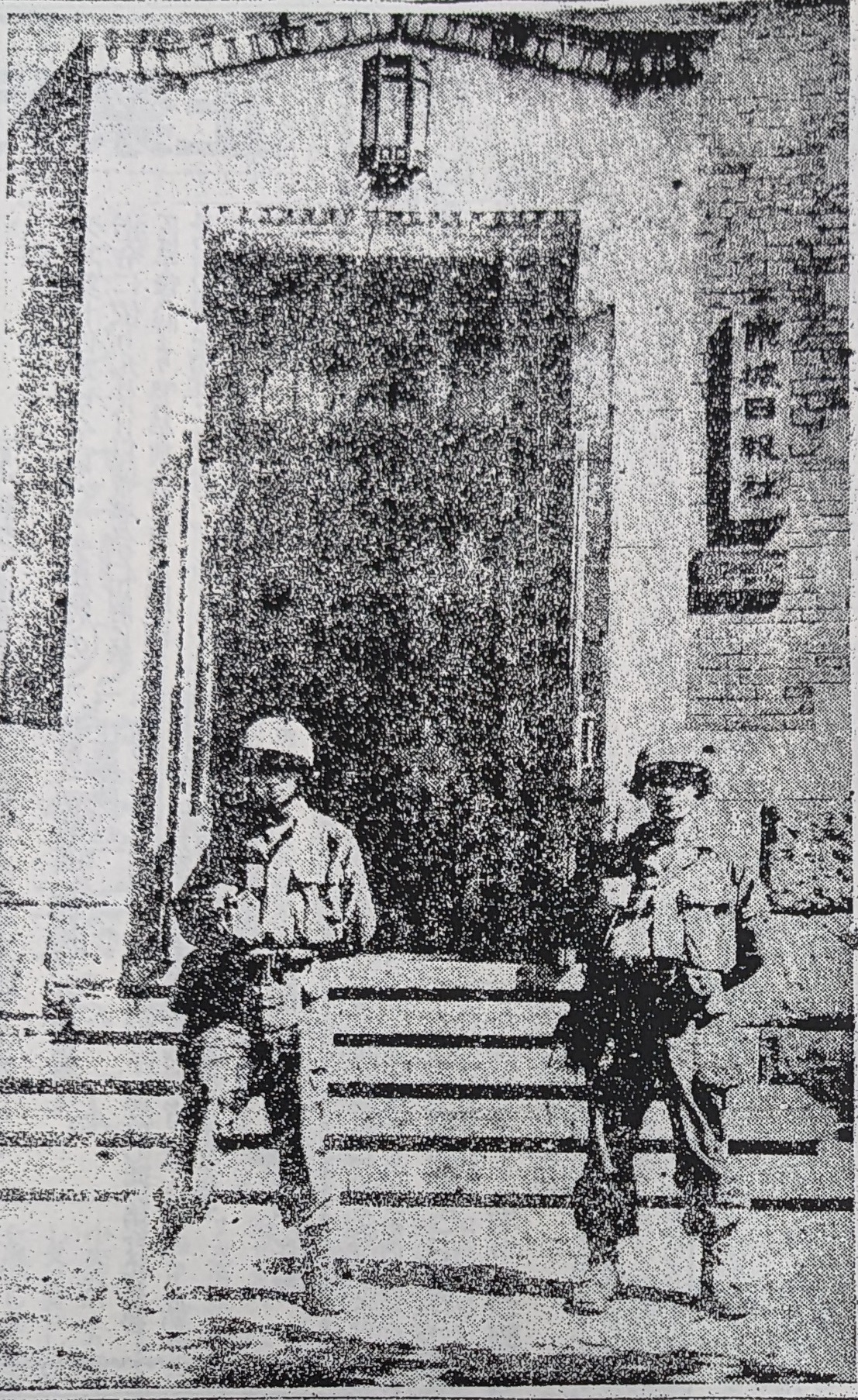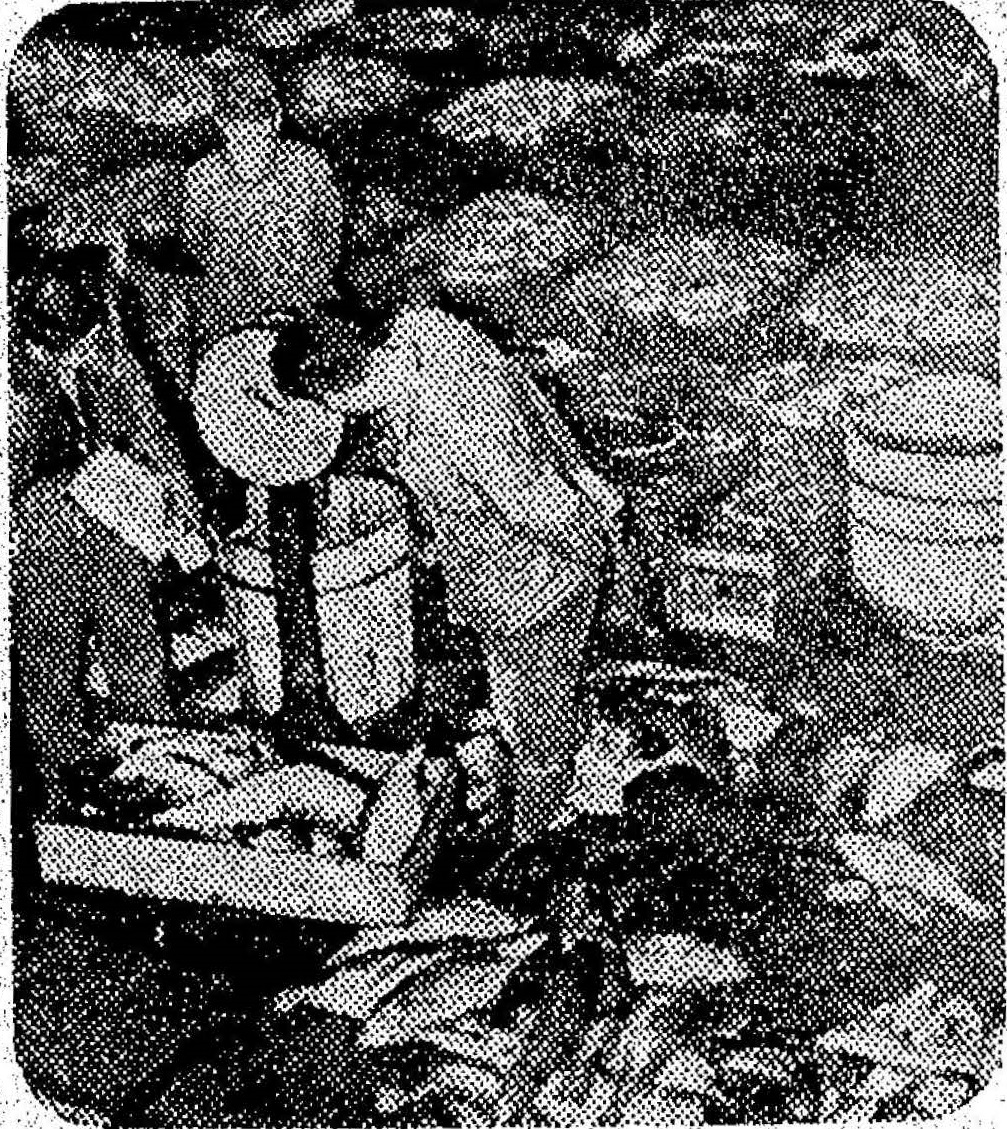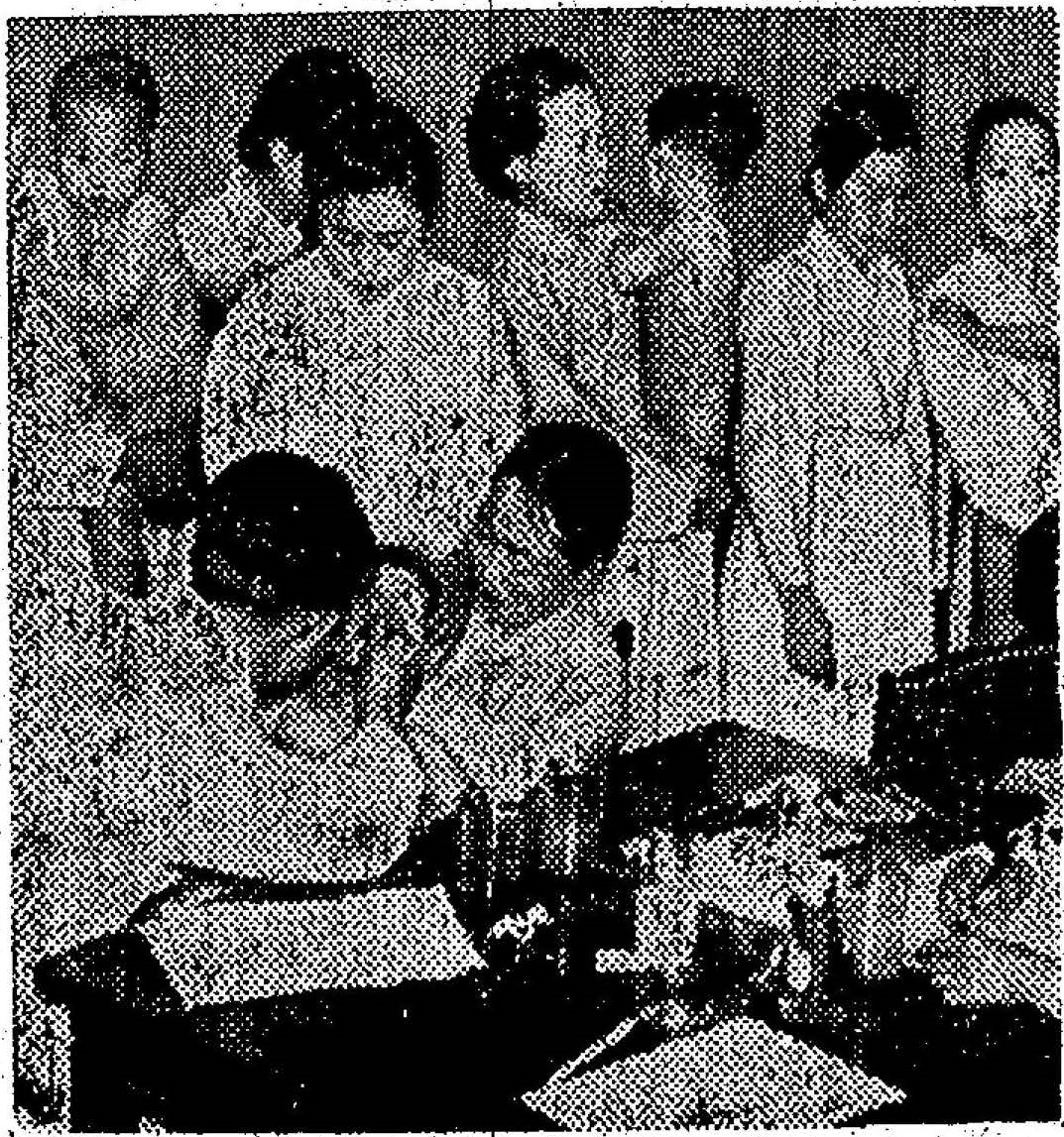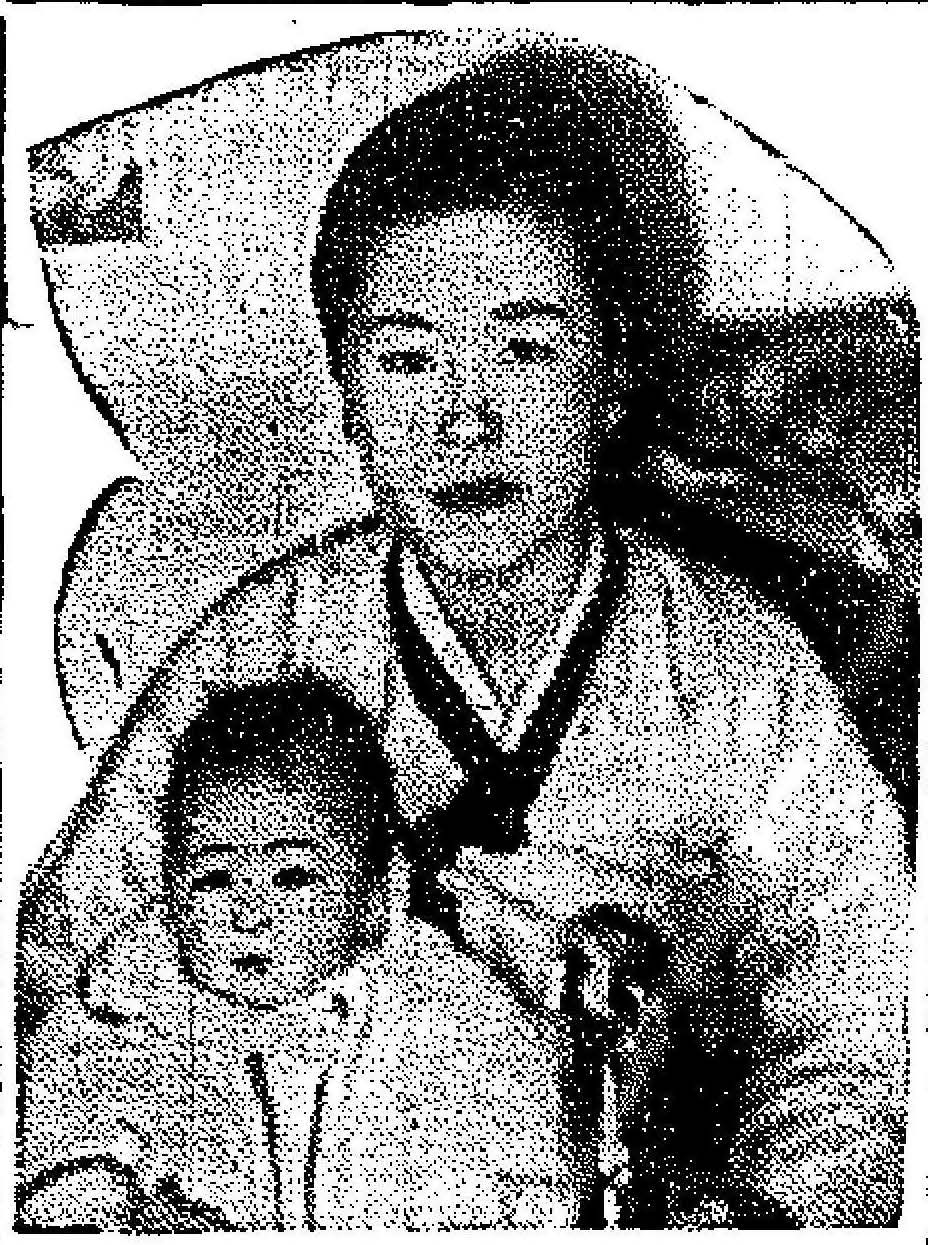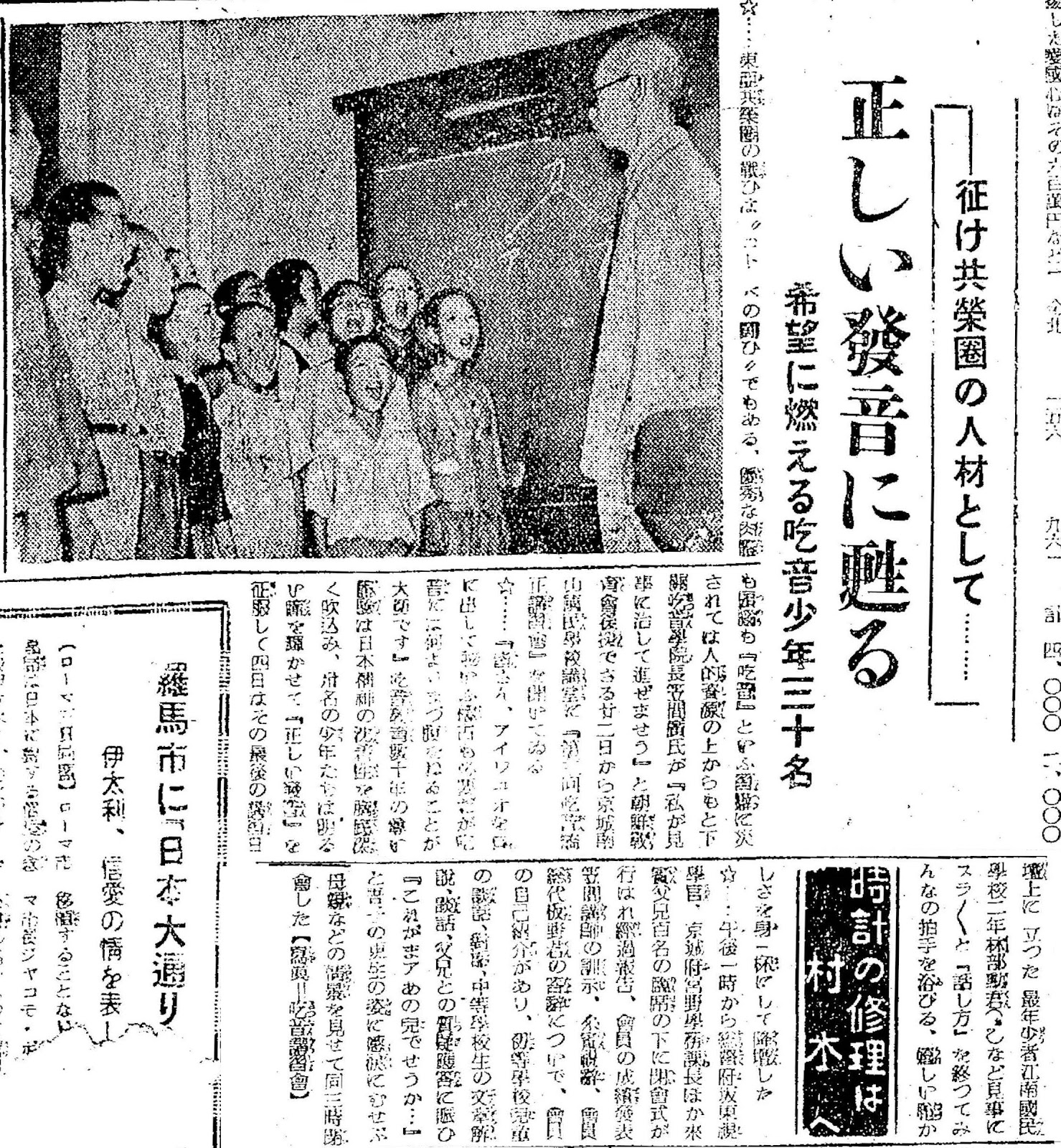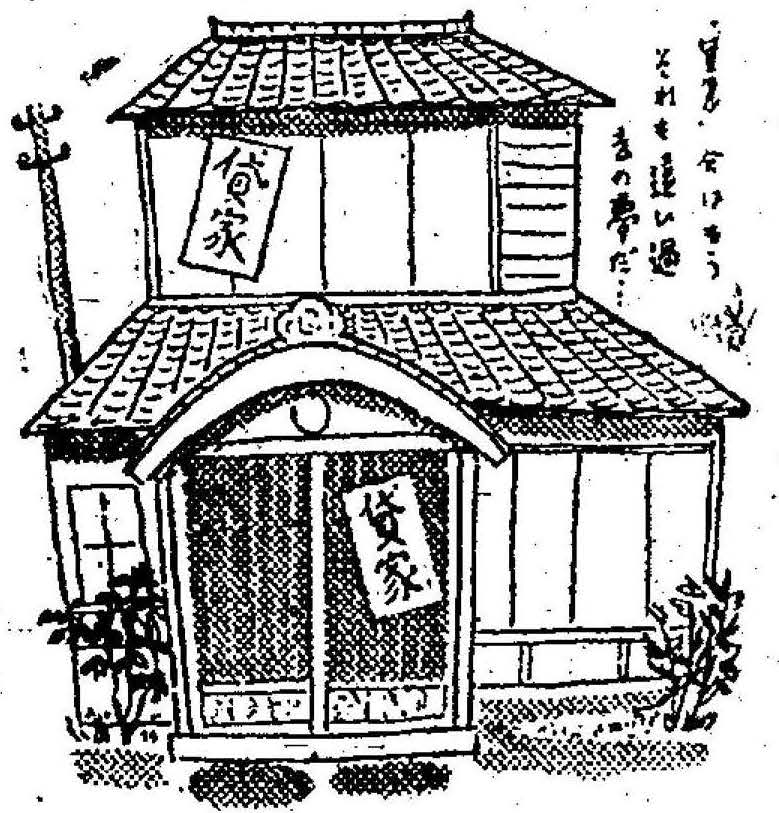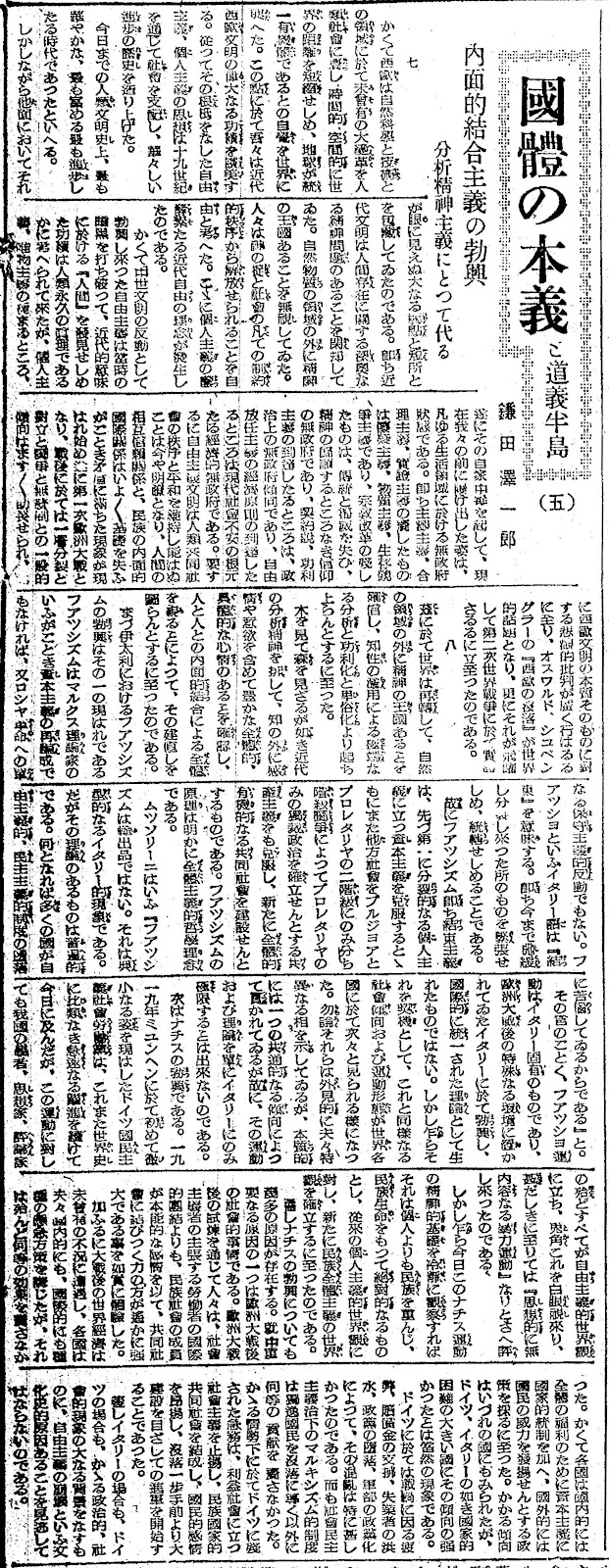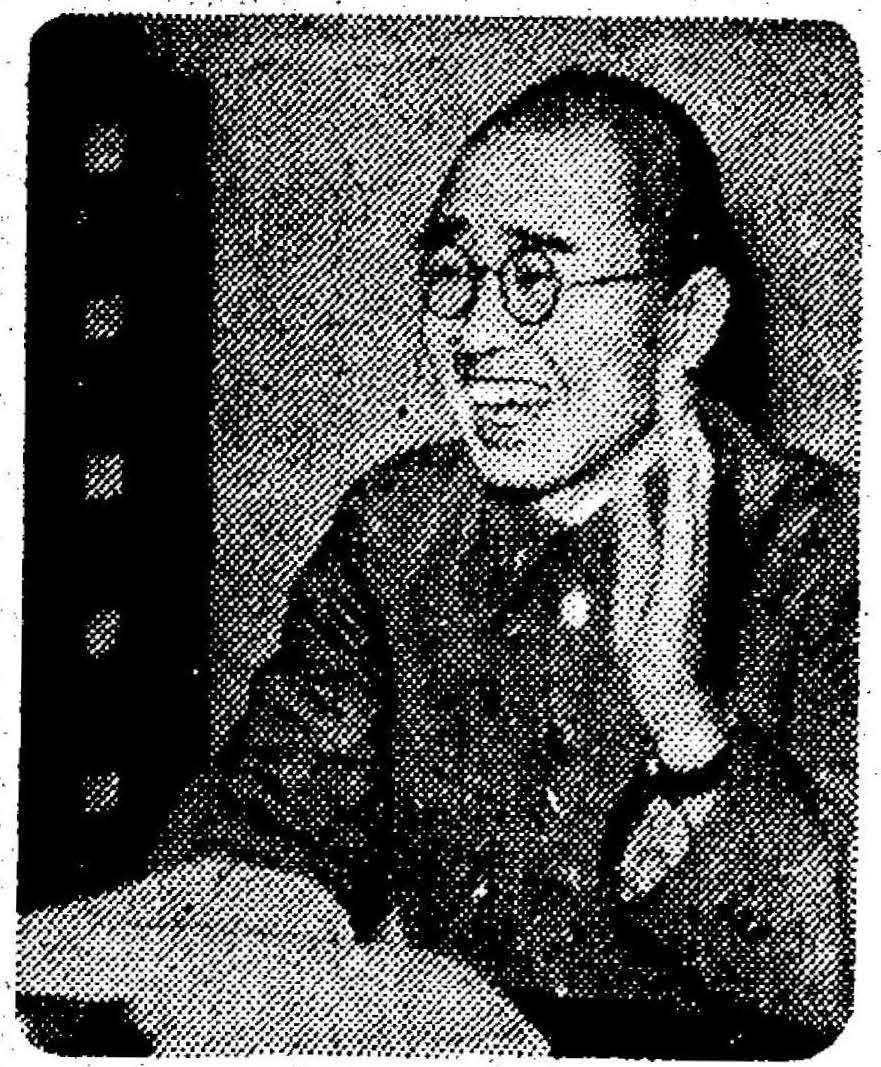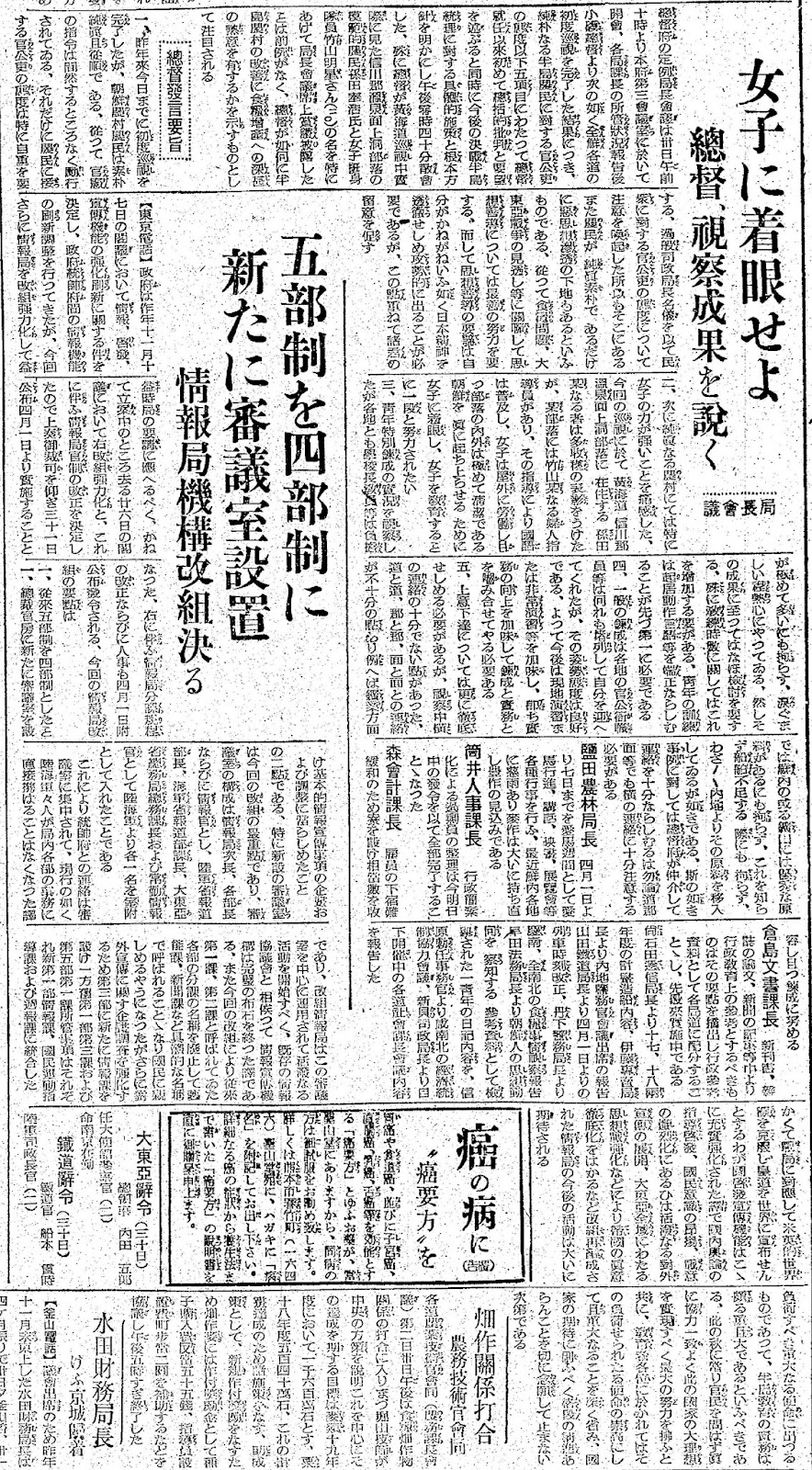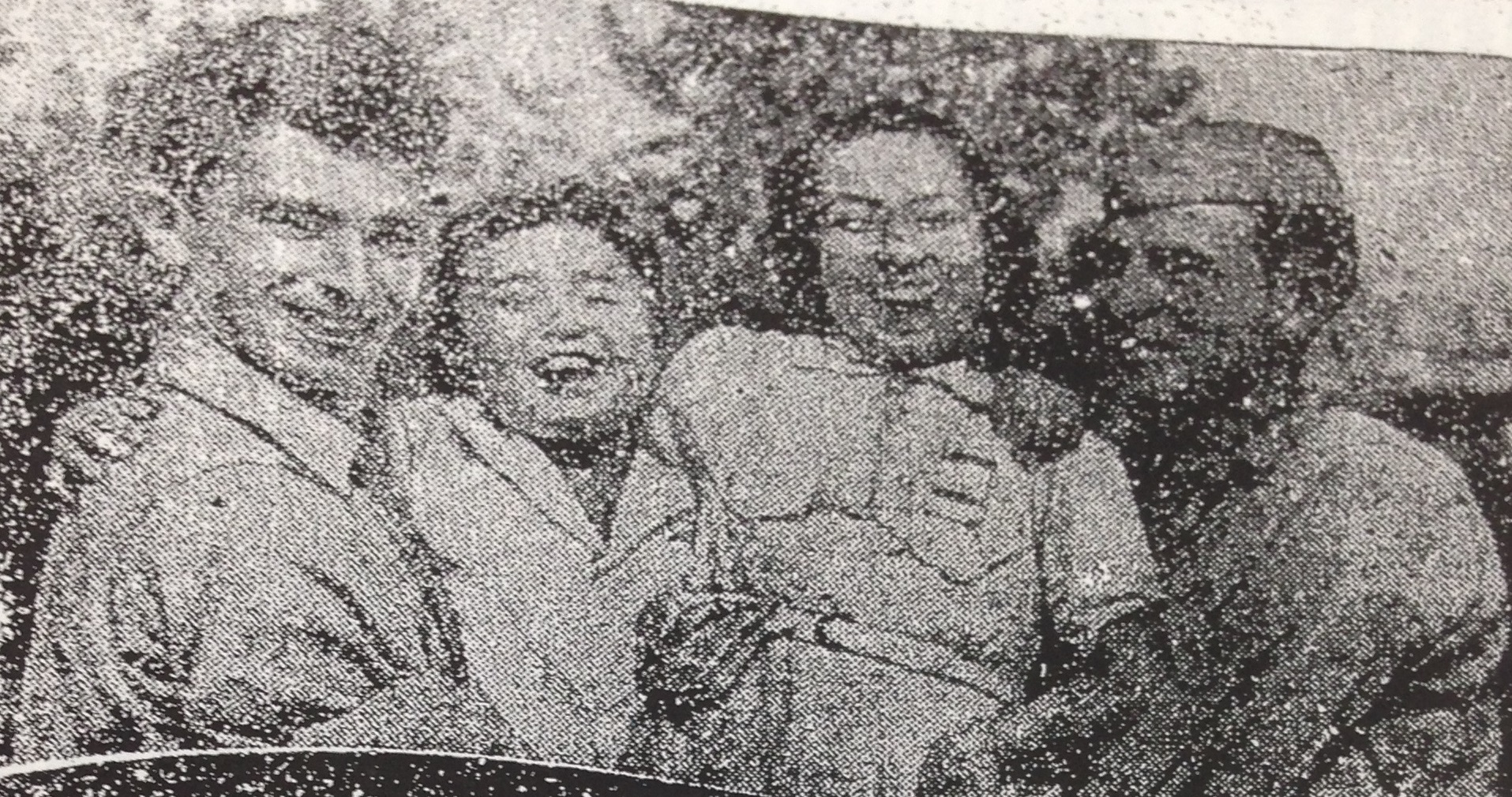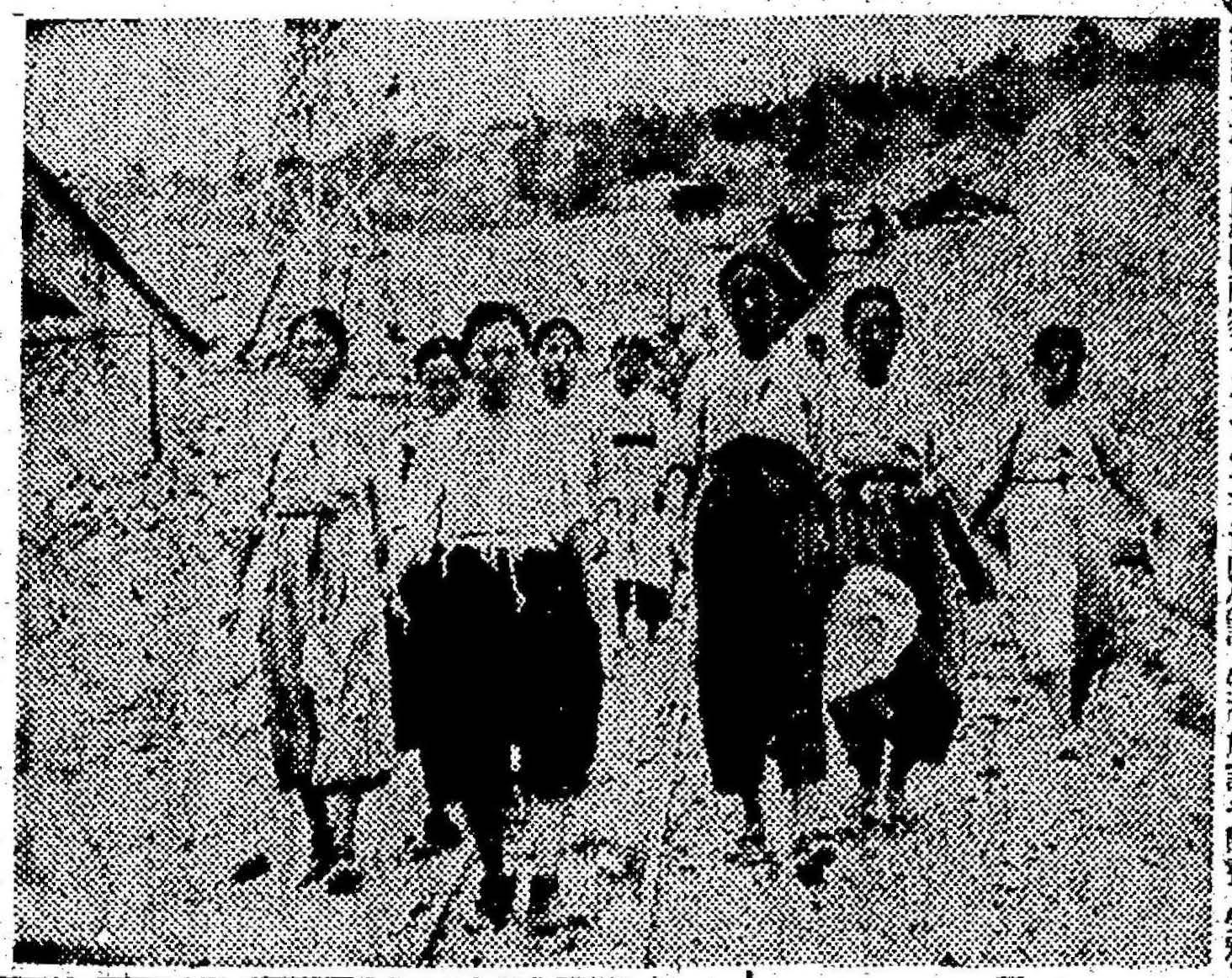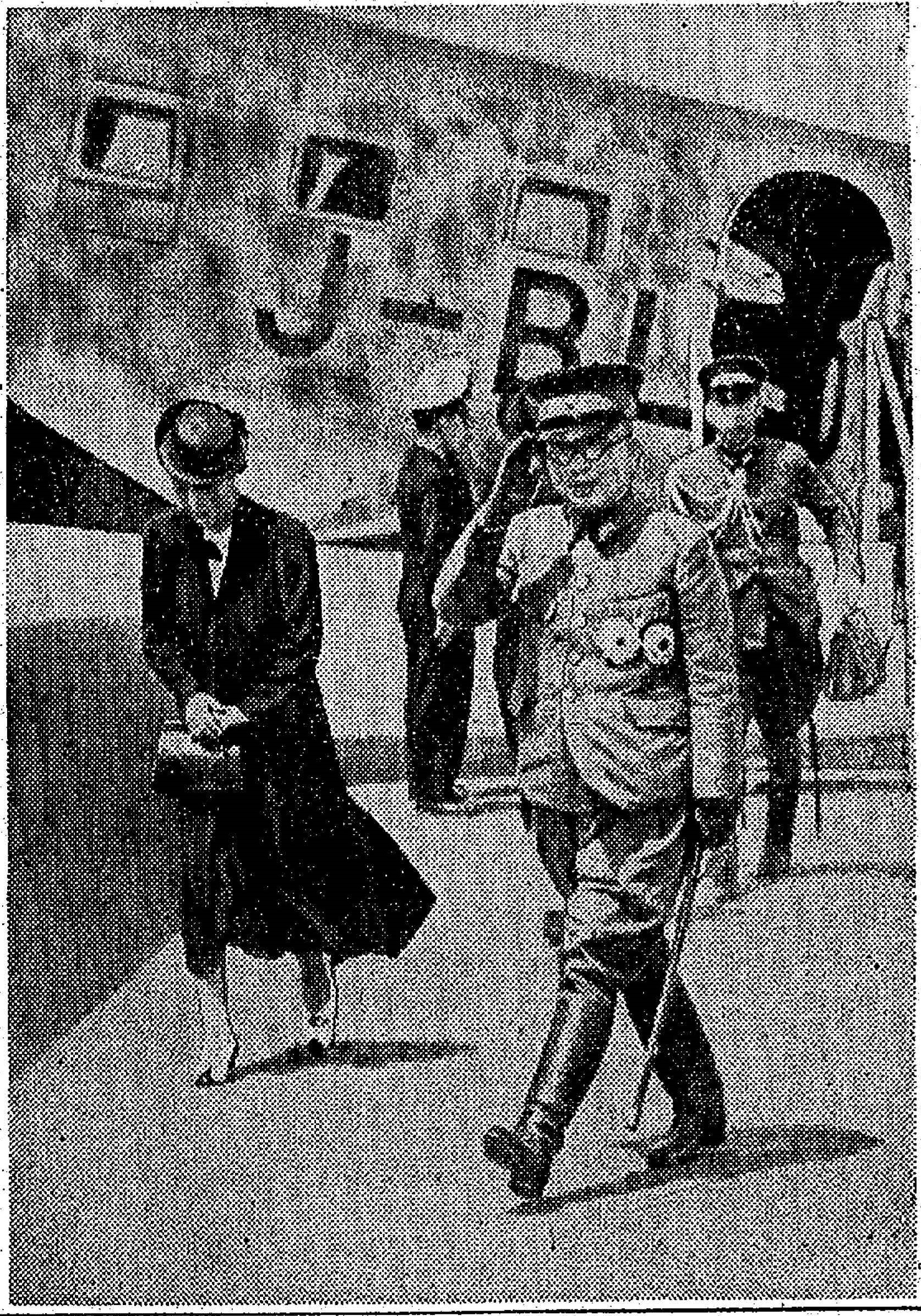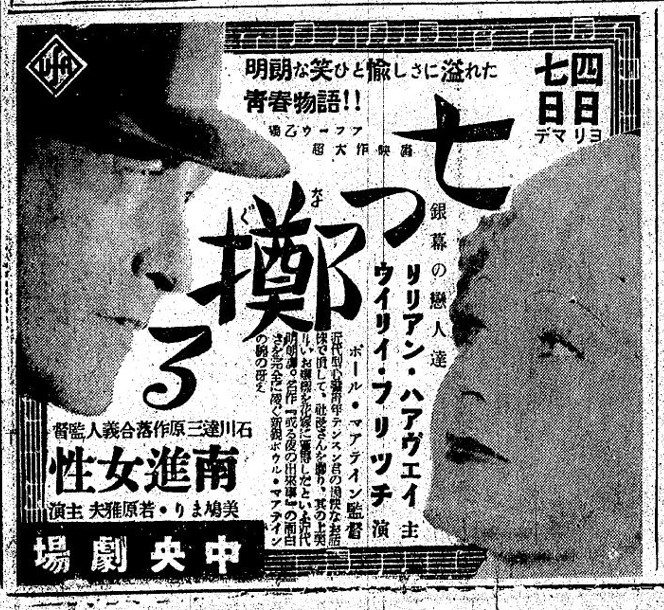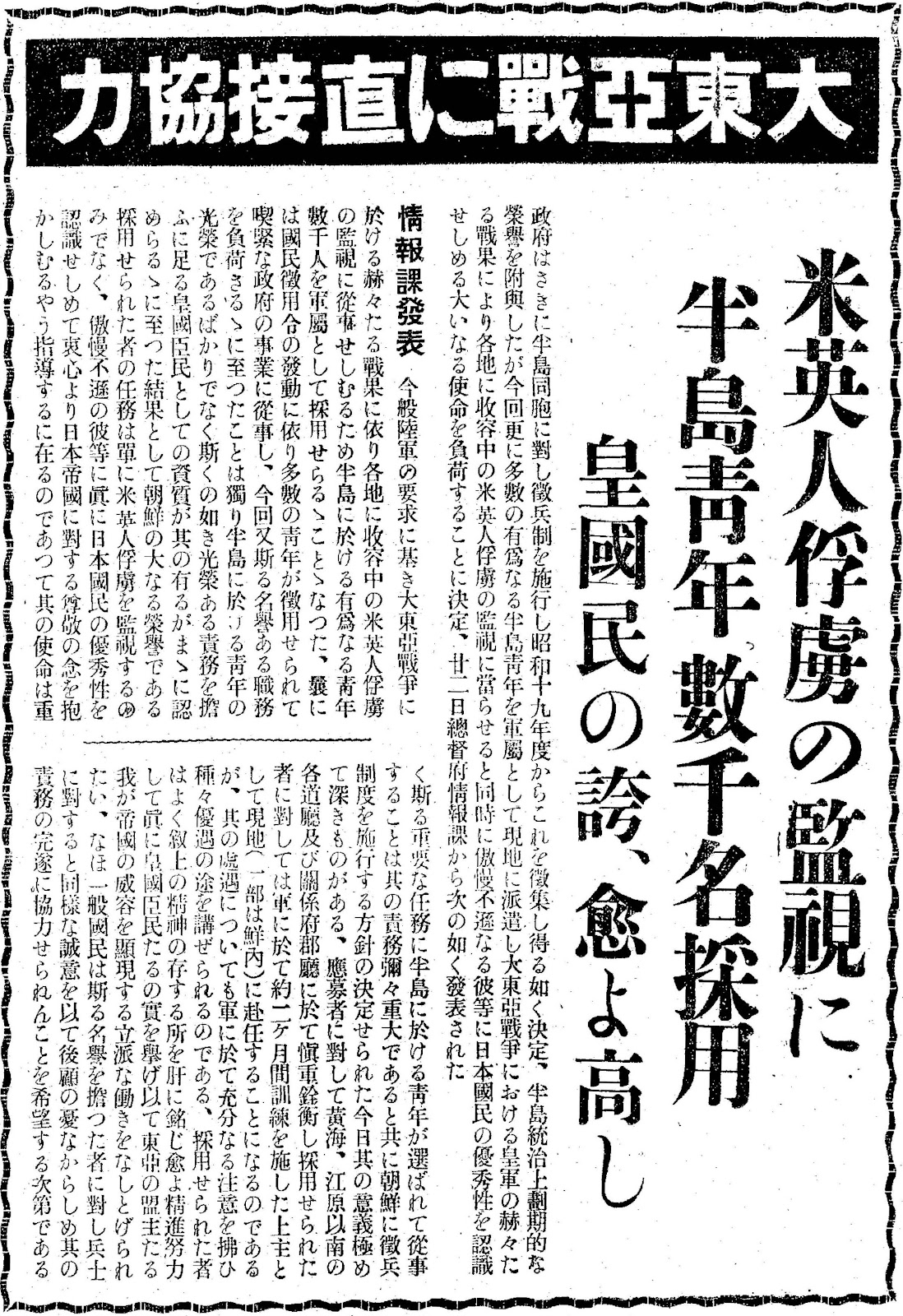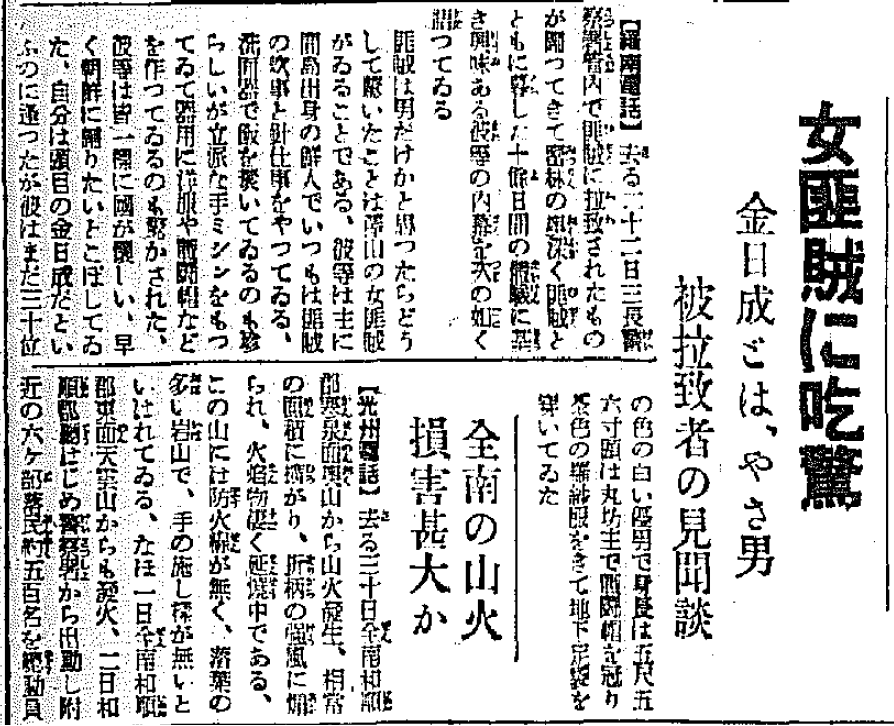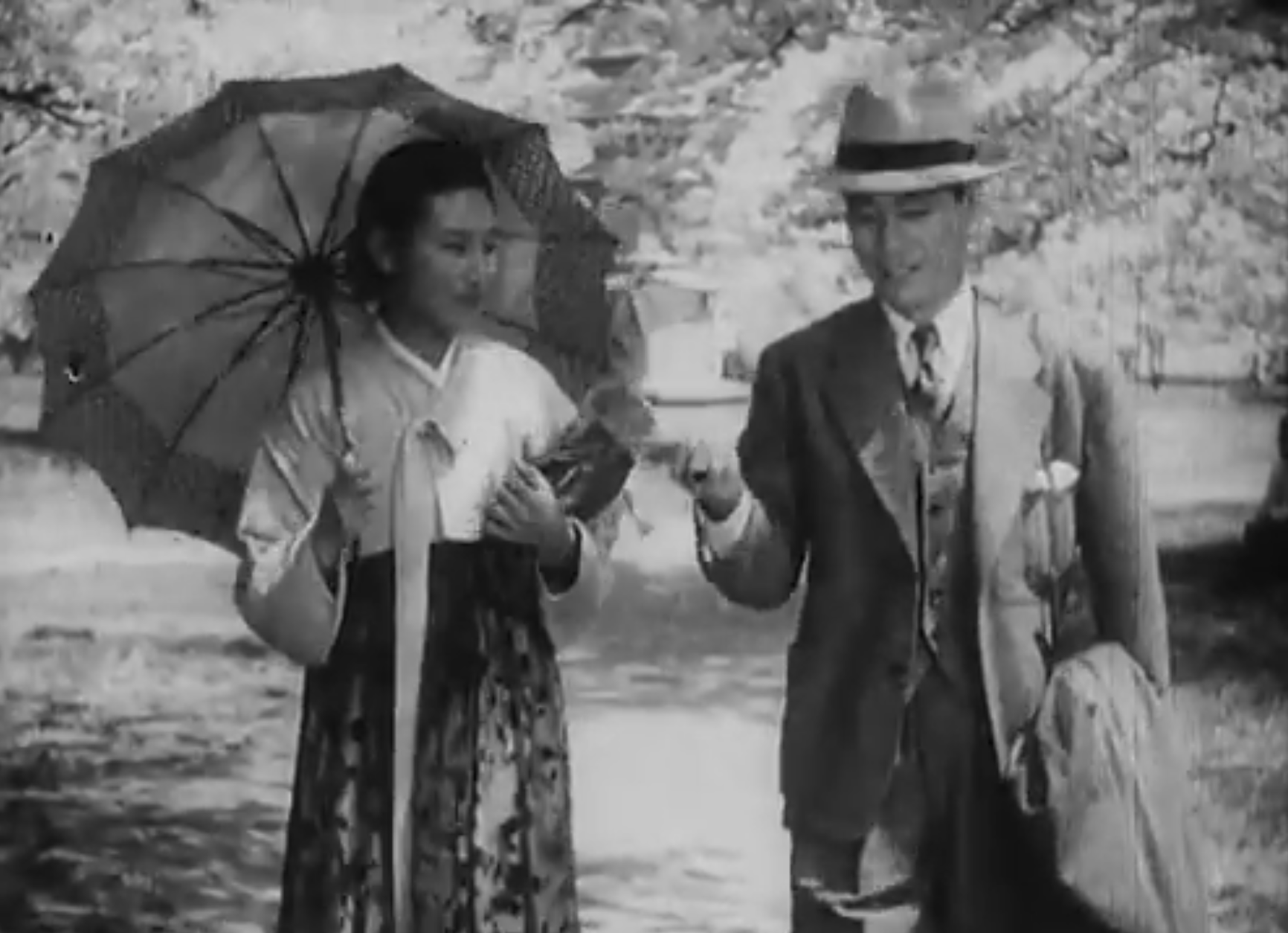
Chinese children in 1944 Seoul featured singing to Imperial Army soldiers ‘in the beautiful bloom of Japanese-Chinese friendship’
2024-06-08
369
611
This is a historical article published in 1944 in the Keijo Nippo newspaper, which served as the national newspaper of colonial Korea and a propaganda organ of the Imperial Japanese colonial regime that ruled Korea from 1905 to 1945.
This article provides a glimpse into an event where Chinese children from the Seoul Overseas Chinese School, which still exists today in the Myeongdong district of Seoul, entertained wounded Imperial Army soldiers with song and dance in 1944 during World War II. Not surprisingly, their school endorsed the puppet Wang Jingwei regime known as the Reorganized National Government of the Republic of China. Interestingly, the Russian Tatar community in Seoul also had their children perform for injured soldiers in a similar manner. These activities were part of efforts to evoke a sense of Pan-Asian unity, aligning with the concept of the East Asian Co-Prosperity Sphere promoted by Imperial Japan.
This historical account highlights that minority communities in Korea were not exempt from demonstrating support for Imperial Japan. Neutrality was not an option. The Chinese community in Korea numbered around 83,000 in 1942, though it remains unclear how many of them resided in Seoul at that time. Chinese residents contributed significantly to the economy of colonial Korea, as China was the colony’s major trade partner, and Chinese residents facilitated this trade.
[Translation]
Gyeongseong Ilbo (Keijo Nippo) April 7, 1944
They Applaud and Forget Their Painful Wounds
The Good Children of China
Comforting the Brave Soldiers in White
“Sakura, Sakura, Sakura blossoms of March!”
In the beautiful bloom of Japanese-Chinese friendship, the charming Chinese children, filled with the spirit of living and dying together, sang the military Sakura song to the brave soldiers in white. The good children, symbolizing the vigorous new spirit of the young Republic of China that has risen strongly for the peace of East Asia, sang with all their might. Their endearing voices deeply touched the hearts of the gently smiling brave soldiers, evoking a warm bond and a shared passion to walk forward hand in hand.
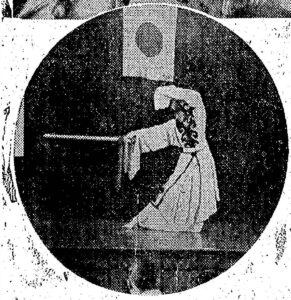
To commemorate the Chinese Children’s Day on April 4th, on the afternoon of the 6th at 1:30 PM, when the forsythia fruits were swelling, twenty-five children from the Seoul Hanseong Overseas Chinese School, led by Principal Xue, held a lively entertainment event to thank and comfort the injured Imperial soldiers at the Yongsan Seoul Army Hospital in the Patriotic Hall. After presenting a donation from the children’s sincere hearts, Principal Xue and student representative Zhang Changfang gave heartfelt speeches in fluent Japanese to open the event, saying, “We are striving to become as admirable as the strong children of Japan. Although we cannot fully comfort the brave soldiers who fought for the liberation of the East Asian peoples with our humble performances, we hope our sincere hearts can bring them joy. We, Chinese children, are grateful to the Imperial soldiers whom we see as our fathers and brothers and pray for their health.“
They performed a variety of songs and dances, including the “The March of Prosperous Asia,” “Invincible Imperial Army,” and “Military Sakura,” as well as games, magic, drama, and Chinese sword dance, offering a bouquet of entertainment. The brave soldiers, whose white uniforms filled the venue, were so delighted by the adorable and passionate performances that they forgot their pain and gave thunderous applause. Finally, with a supporting performance by the Korean Music and Drama Troupe, the pure-hearted entertainment beautifully linking Japan and China concluded, delighting the soldiers to their hearts’ content and alleviating their boredom. Everyone took commemorative photos with the soldiers and departed at 4 PM. [Photo: The Brave Soldiers in White Enjoying the Entertainment Performances]
[Transcription]
京城日報 1944年4月7日
痛む傷も忘れて拍手
中国のヨイ子
白衣の勇士を慰問
さくら、さくら、弥生のさくら!
日華親善の美しき花咲いて可憐な中国児童が同生共死の感激こめて白衣の勇士に捧ぐる軍国桜の唄、東洋平和のため新生の息吹きを浴びて逞しく起った友邦中華民国の若き姿を象徴したヨイ子達が、せい一ぱい歌ういじらしい声は優しく微笑む勇士の胸底を強くうち、手に手をとって共に歩み進まんとする熱情がこみあげて温かく結ばれる。
陽春四月四日の中国児童節を記念して連翹の実ふくらむ六日午後一時半過ぎ京城漢城華僑学校の子供達二十五名は薛校長に引率されて傷つける皇軍勇士を感謝慰安する賑やかな演芸会を龍山京城陸軍病院本院愛国館で催した。児童真心の慰問金を贈ったのち薛校長と児童代表張長芳さんが流暢な国語で『私達は強い日本の子供に負けず立派な人になるため励んでいます。東亜民族開放のため戦われた勇士を私達の拙い演芸で慰めることは出来ませんが、その真心だけでも喜んで戴けば幸いです。中国の子供が父や兄と思って感謝している皇軍勇士の健康を祈ります』と懇ろな挨拶があり開会。
”興亜行進曲”、”無敵皇軍”、”軍国桜”をはじめ唱歌、遊戯、舞踊、魔術、劇、中国剣舞など盛り沢山な慰問の花束を捧げ、涙ぐむほどの可愛らしい熱演に会場をぎっしりと埋め尽くす白衣の勇士は負傷の痛みを忘れて有頂天に喜び割れるような拍手を送った。最後に朝鮮楽劇団の援助公演があり、心ゆくまで無聊の勇士を楽しませて日華を美しく結ぶ純情の演芸を終了。一同は勇士と共に仲良く記念撮影して同四時引きあげた。【写真=楽しむ白衣の勇士と慰問演芸】
Source: https://archive.org/details/kjnp-1944-04-07/page/n2/mode/1up
